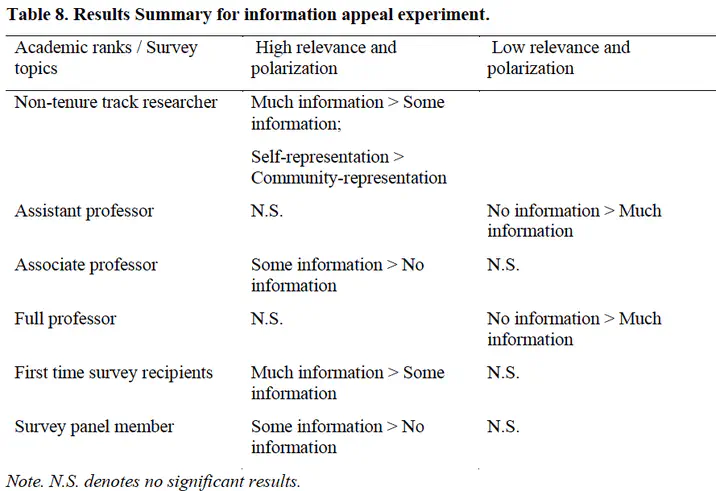Invitation Appeals and STEM Academic Scientists Research Participation: Findings from Six Survey Experiments

Abstract
Survey research is a primary method used to investigate the opinions, perceptions and behaviors of academic scientists. However, little is known about the most successful appeal strategies for eliciting survey participation from these busy, highly educated professionals. Drawing on leverage-salience theory, this study examines the impacts of two sets of invitation appeals—information and representation appeals—on survey response rates among academic scientists in four STEM fields employed at U.S. R1 universities. Findings from six randomized experiments show that the effectiveness of both sets of invitation appeals is mixed and context-dependent, varying based on the polarization and relevance of survey topics, STEM academic scientists’ career stage, and their prior interactions with survey administrators. Specifically, self-representation appeals are most effective for polarized topics when recipients have low community affiliation. Less detailed information appeals are more successful when asking about low relevance topics, particularly for recipients with greater demands on their time, while more detailed information is effective for highly relevant and polarized topics. Additionally, invitations containing more detailed information are effective for first-time recipients in survey panels. This complexity reinforces the importance of designing effective outreach strategies to account for survey topics and recipient characteristics.